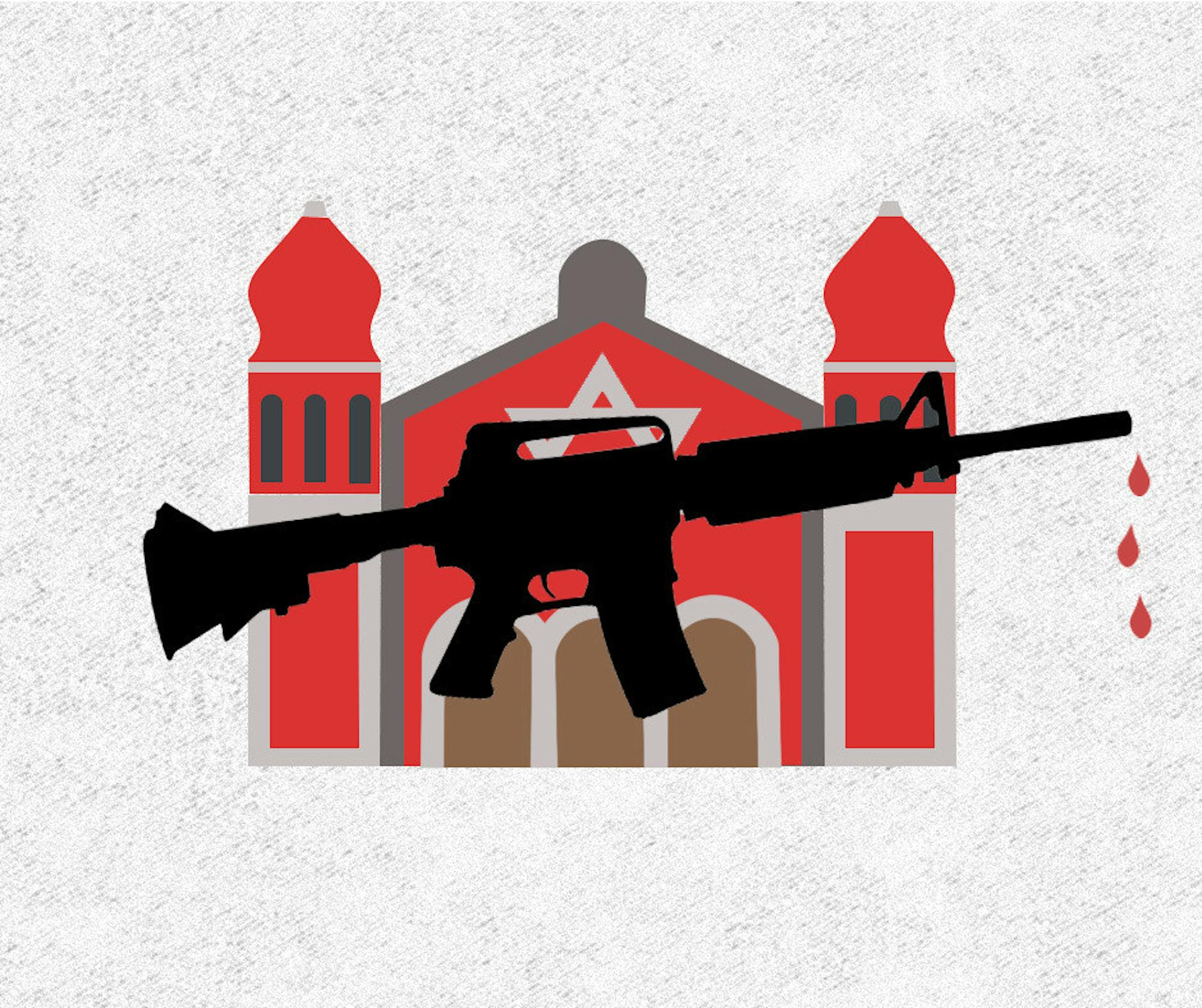
For most kids, Saturday mornings involved sleeping in, watching TV and doing homework. But that wasn’t the case for me. I got up early, put on a nice dress and went to synagogue.
While my routine may have been different, it never crossed my mind that simply practicing my religion risked my life.
In the Jewish faith, Shabbat, which begins Friday at sunset and lasts until sundown on Saturday, is a holy day of rest. For my family, this meant eating dinner together on Friday night, and often going to synagogue for Shabbat morning services. It is meant to be a joyous and peaceful day where we set aside time to spend with family and celebrate our faith.
Yet, this is now prohibited by the climate of growing antisemitism. In 2020, despite making up less than 2% of the population, Jews were the subjects of almost 55% of religious hate crimes. As long as antisemitic violence continues, synagogues will be a primary target. In 2018, 11 people were murdered at the Tree of Life Synagogue in Pittsburgh. Six months later, another shooting occurred at a synagogue in Poway, Calif.
After these tragedies, security became an ever looming presence in my life. In both my Jewish day school and at my synagogue, the sight of multiple armed guards became commonplace. Often, the local police would come by, just to serve as a visible deterrent. I also could no longer enter either building on my own, as someone had to check the identity of every person coming in. While I suddenly had to buzz into the building, walk past armed guards and see parked police cars on a daily basis, I still felt relatively safe, naively thinking we learned from those two tragedies what security measures were necessary and that it was unlikely to happen again.
Unfortunately, I was wrong. On Jan. 15, four people were held hostage for 11 hours at a synagogue in Colleyville, Texas. The hostage taker had a gun, and claimed to have bombs as well. The very security training implemented after past attacks proved life-saving, as all four hostages made it out alive. Using knowledge from training sessions with the Secure Community Network, Rabbi Charlie Cytron-Walker threw a chair at the gunman, allowing him and the other hostages to escape. What should have been a typical Shabbat morning, like every week, instead became another day remembered for an antisemitic terror attack and hate crime.
Many thoughts raced through my mind when I saw the news about the synagogue in Texas. But the one sticking out the most to me is the horrific idea that my loved ones or my community could be next. Other than being Jewish institutions, there was nothing special about the synagogues in Colleyville, Poway or Pittsburgh that made them targets.
The FBI initially claimed that the hostage situation was not an act of antisemitism. However, this characterization was ignorant, as the hostage taker made blatantly antisemitic statements during the incident. If we can’t count on the FBI to even identify antisemitism, how are we supposed to trust them to protect us from it?
Violence affecting places of worship is not exclusive to Jewish people. In 2019, 51 people were murdered in a mosque in Christchurch, New Zealand. But unlike the U.S., New Zealand’s government took action to prevent such a tragedy from ever happening again. Within weeks, the country’s parliament passed gun control laws and New Zealanders created a movement to curb extremism online hate. Despite launching an initiative directed at online hate, New Zealand has still not passed legislation that supports it. However, by targeting both weapons and the source of hate, New Zealand’s government showed its commitment to preventing a similar tragedy from occurring. On the other hand, in the U.S., leaders do little more than vowing to stand against hate, without outlining any clear plan of action.
The issue of violence in places of worship is inherently tied to both the physical tools and the digital platforms that threaten people’s lives. As long as there are people in this world who hate others and are willing to use lethal weapons, it is incumbent upon our leaders to step up and protect innocent people. The U.S. cannot continue to allow hate to spread online, while making weapons easily accessible to those who would carry out violence in the name of hate. While the City of Pittsburgh tried to enact stricter gun control after the shooting in 2018, the state and federal government did nothing.
The often used phrase “thoughts and prayers” cannot be the only response to tragedies that could have been prevented. We should take cues from countries such as New Zealand that have taken action on both the source of the hate and guns in the wake of similar tragedies, and do the same in the U.S. Everyone should feel safe to openly practice their faith in this country, and my typical childhood Saturday morning should not have been more dangerous than anyone else’s.





